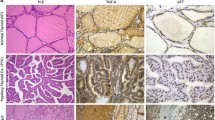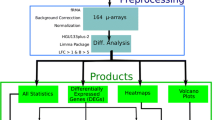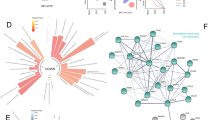Abstract.
Despite the uncontested role of p53 in cycle arrest/cell death after cisplatin treatment, to date the question whether wild-type p53 confers a resistant or sensitive status on the cell is still a matter of debate. Isogenic and isophenotypic human thyroid papillary carcinoma cell line variants for p53 differently expressed cycle genes after cisplatin treatment. Seven genes (CDC6-related protein, CCNC, GAS1, TFDP2, MAPK10/JNK3, WEE1, RPA1) selected after expression on an Atlas human cell cycle array were analyzed by quantitative real-time PCR. While cisplatin treatment increased their expression in p53 wild-type cells it decreased it in cells with inactivated p53 and had no or less effect on cells with mutated p53. These results show that in a well-defined system, different alterations of p53 can lead to a different regulation of genes and hence to either resistance or sensitivity to cisplatin. Moreover for the first time, MAPK10/JNK3 was identified in human thyroid cells and tissue. Four of the genes (CDC6-related protein, CCNC, GAS1 and TFDP2) were decreased in human papillary carcinoma tissues. Relevance of these genes (especially a decrease in GAS1 in thyroid papillary carcinoma) in various malignant pathologies has already been shown. These genes may be explored as new markers in advanced thyroid cancer such as metastatic and anaplastic forms displaying p53 alterations.
Similar content being viewed by others
Author information
Authors and Affiliations
Corresponding author
Additional information
Received 26 July 2004; received after revision 14 September 2004; accepted 26 October 2004
Rights and permissions
About this article
Cite this article
Lapouge, G., Millon, R., Muller, D. et al. Cisplatin-induced genes as potential markers for thyroid cancer. CMLS, Cell. Mol. Life Sci. 62, 53–64 (2005). https://doi.org/10.1007/s00018-004-4329-z
Issue Date:
DOI: https://doi.org/10.1007/s00018-004-4329-z




